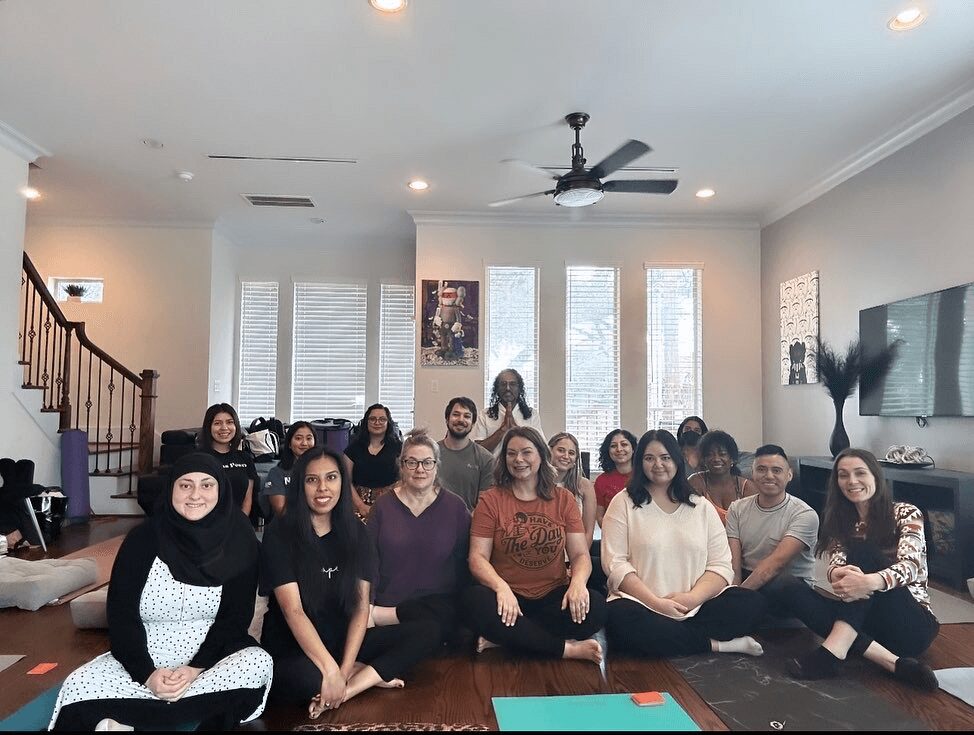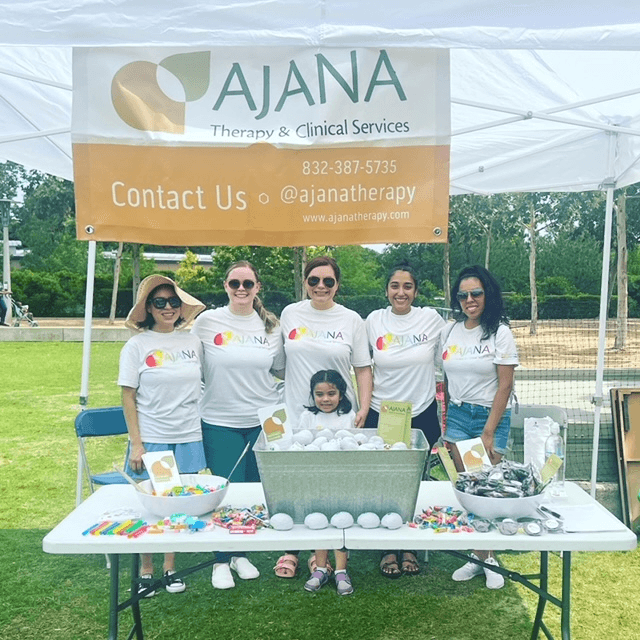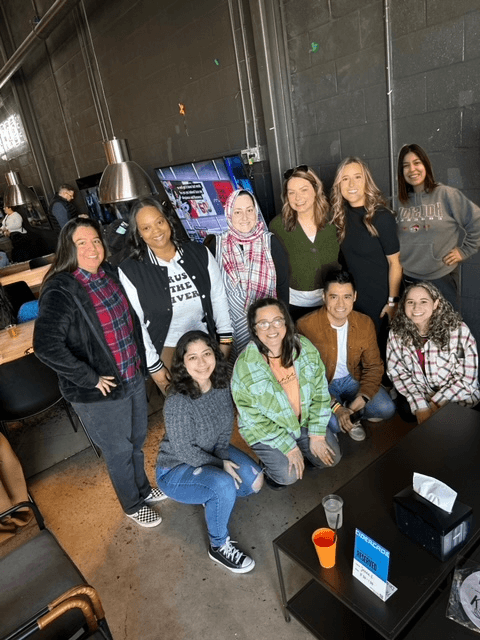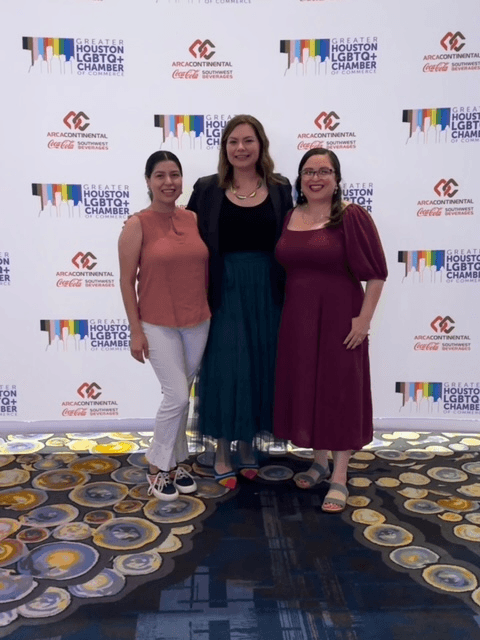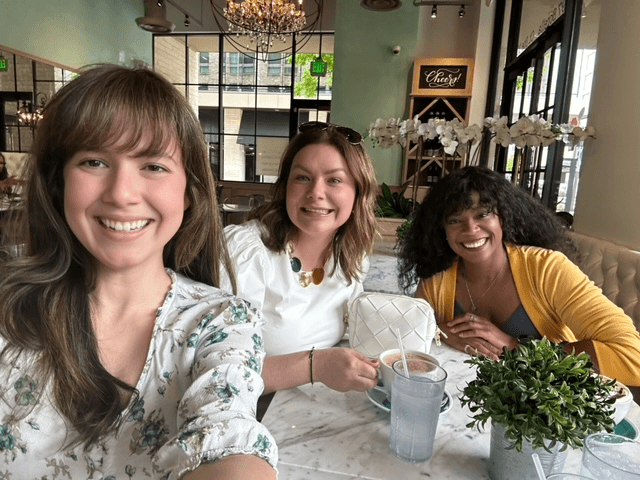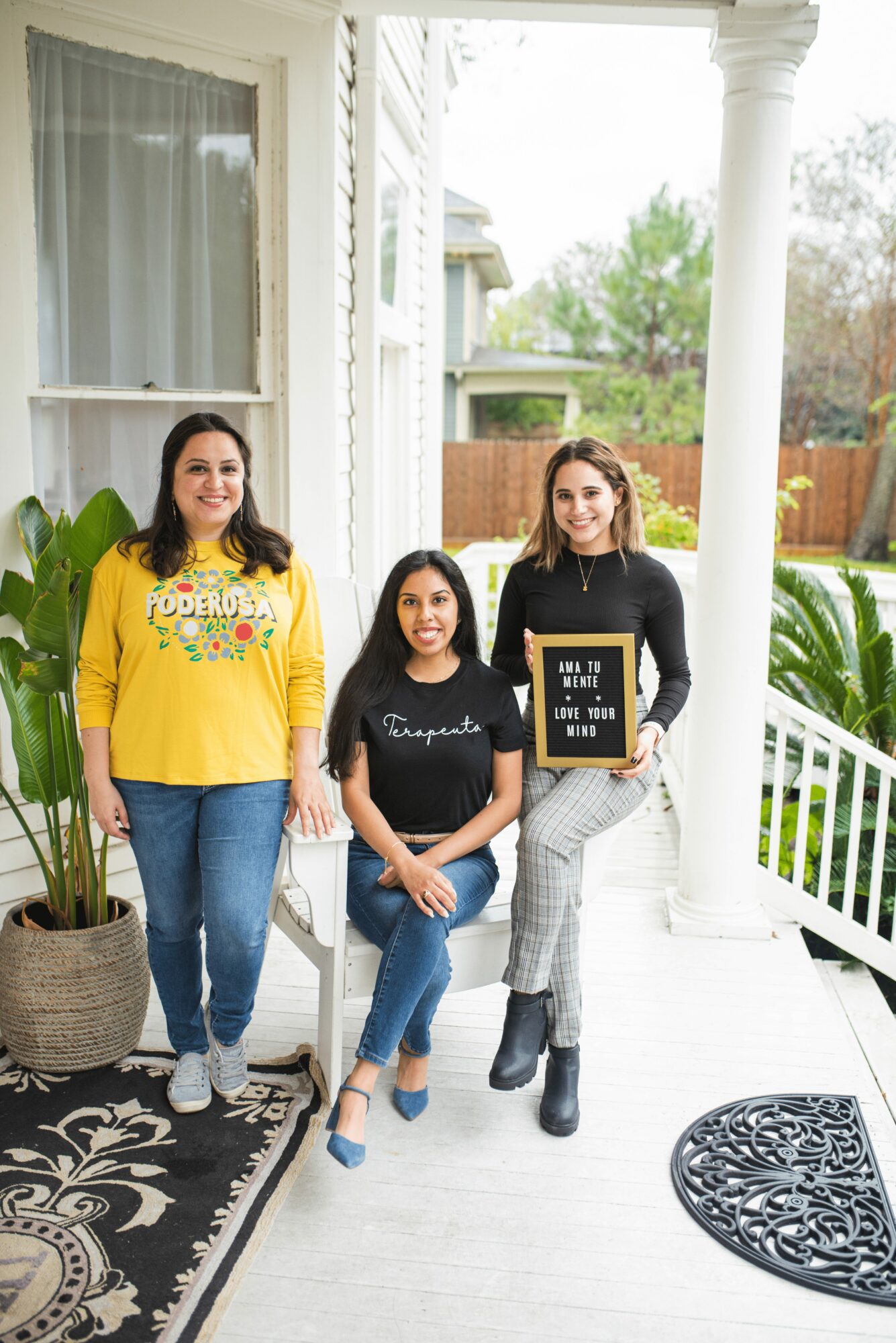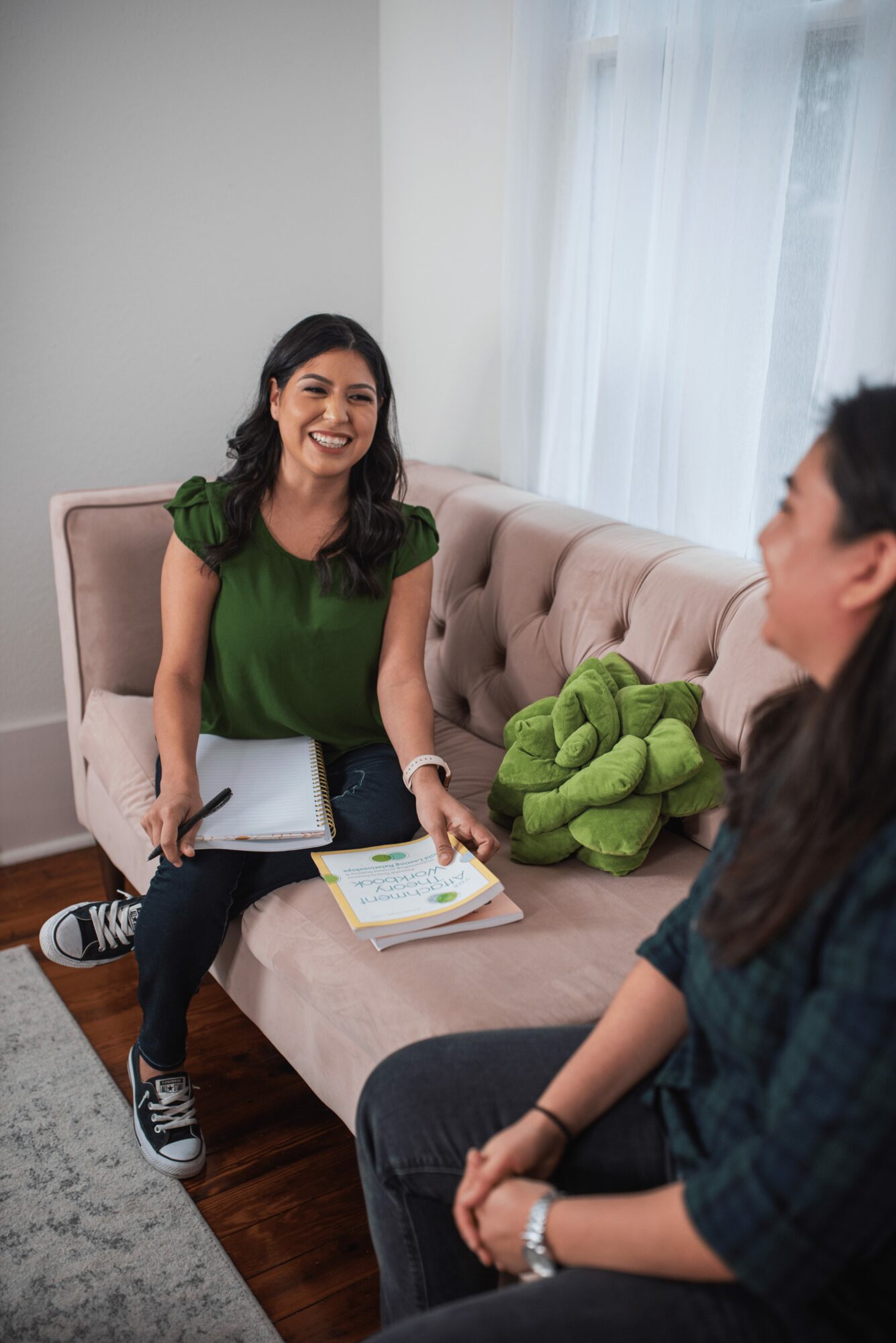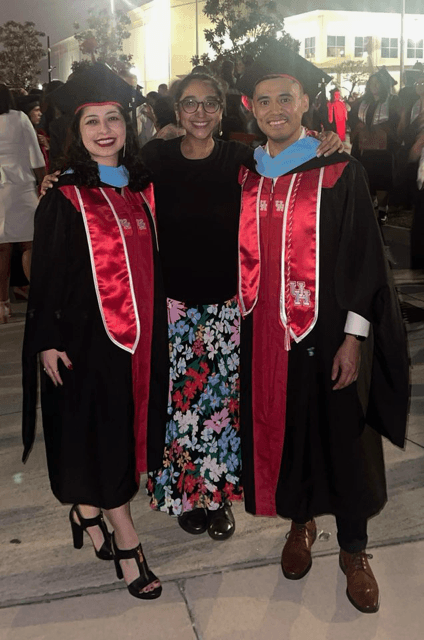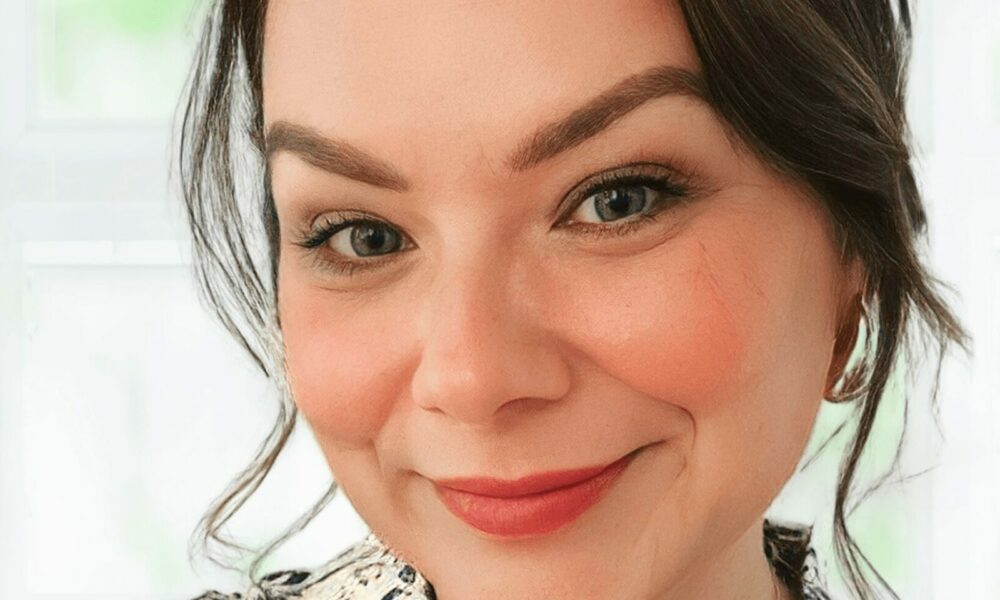

Today we’d like to introduce you to Jessica Eiseman.
Hi Jessica, it’s an honor to have you on the platform. Thanks for taking the time to share your story with us – to start maybe you can share some of your backstory with our readers?
I was a little lost when I started out. I wasn’t sure what I wanted to do after high school. I was the first person in my family to go to college. I followed a good friend of mine to the University of Houston after attending community college for a year. She was a psychology major, I looked up to her, and I had a great psychology class in high school that I enjoyed. So I declared that as my major. While in undergrad, I began working in a nonprofit organization helping kids in child protective services, which first began to expose me to some of the harsh realities of the world. After graduation, I received the opportunity to work at what is now called The Council on Recovery, where I went into middle schools and taught kids social skills classes. They hated me at first because I was taking them out of gym class for 6 weeks (I don’t blame them, they were kids). However, it was during that job that I began to recognize my ability to connect with people. Through connecting with the kids, I realized that so many of the children I worked with went to homes at the end of each school day filled with abuse, neglect, and violence. My classroom and my time there was a refuge for those kids. I often wonder if I made any difference in their lives.
After my time there, I started working at Baylor College of Medicine’s Department of Psychiatry, conducting research with individuals diagnosed with schizophrenia. I had to help assess them, take physical measurements, and collect data for several research projects. It was there my love and curiosity for working with people with severe mental illnesses began. It also is where I got my motivation to return to school to pursue my masters degree. From there, I moved into Baylor’s Department of Neuroscience for several years. I ran clinical research projects using fMRI brain scanners for veterans with a diagnosis of posttraumatic stress disorder, and individuals in the community living with depression. During that job, I also attended school full time, and in December 2010 I graduated with my master’s of counseling degree. I applied for my counseling intern license (now called associate) and began my search for a job where I could begin obtaining the 3000 hours I needed to become fully licensed.
My counseling intern years gave me a wide range of experiences and exposures to various treatment models, clinical settings, and the wide spectrum of diagnoses. My first job out of graduate school was to work in a partial hospitalization program, which ultimately was shut down by the FBI about six months after I started working there due to millions of dollars in Medicare/Medicaid fraud. I was immediately thrown into providing four hours of group therapy a day to extremely individuals living with psychosis. Grad school knowledge does not prepare you for the skills to actually know how to work with clients living with severe mental illnesses. However, I found a way to connect our humanities. In that program, I met queens, several major celebrities, and was “gifted” cars, houses, several fast food chains, and at some point, I was also deemed a queen. (hopefully the readers realize this was all the psychosis). I was so sad for the clients there when the program was closed. After that, I had a few other counseling jobs.
At some point, I returned to Baylor College of Medicine, but this time as a therapist working out of several different community clinics around Houston in the Harris Health system. Community mental health, providing mental health services to people whose incomes are below the federal poverty line and unhoused people, was where my heart was for a good chunk of my career. Despite the intense schedule of having up to 13 clients a day in an 8 hour work day, I appreciated the fast-paced environment, working with so many types of clients from all walks of life and backgrounds. Some days I would have sessions with people in 5 different languages (using the language line). This experience is deeply rooted in who I am as a person and as a therapist. I heard Dr. Jeffrey Kottler, who I am a big fan of, once say something along the lines that it is such an honor to be a therapist, as we get to sit with so many people that in our lifetime, we experience thousands of different lives.
At the end of 2015, I found out I was pregnant with my daughter, who will be 7 years old in a few months. The unexpected pregnancy sent me into peripartum depression that lasted throughout my entire pregnancy, and subsequently became postpartum depression after I gave birth. It was during my maternity leave that a good friend and coworker of mine asked me if I would be interested in learning more about writing immigration mental health evaluations for individuals seeking asylum due to traumas, such as genocides, child marriages, human trafficking, and gender and sexuality-based violence. Little did I know at the time how much this work would grow into a huge part of the next phase of my career and become a passion of mine.
I left Baylor after maternity leave and found a job working from home, which I thought would give me more time and flexibility with my new infant, but it did not. It became something else that added to my deepening depression. I had also begun to supervise counseling associates at that time, and learned that some of the difficulties, barriers, and poor treatment I had received during my time in my clinical hours, they were also experiencing.
I had never wanted to be in private practice, and I never in a million years thought I would be running a group private practice. However, one thing quickly led to another, and in 2019, Ajana Therapy & Clinical Services was born and grew faster than I could keep up with. Owning, operating, and providing clinical services at the group practice has offered me many challenges, and a huge learning curve. It has also allowed me to build something that I believe in. A clinical teaching practice where not only can counselors and counselors in training learn a solid clinical foundation, but also where we can provide accessible and affirming counseling services to the community.
I’m sure it wasn’t obstacle-free, but would you say the journey has been fairly smooth so far?
Has it been a smooth road? Not at all. My journey has been filled with challenges, unexpected turns, and significant learning experiences. One of the early hurdles was the experience at the hospital that the FBI shut down. It was a shock, but taught me a lot about resilience, adaptability in the face of chaos, and the recognition that there needed to be some big changes in mental health. Working in various settings as I gained experience in the field, I often encountered the struggles of being overworked, underpaid, and navigating a system that undervalues mental health services. These environments, while rich in learning, also pushed me to my limits, leading to burnout very early on in my career.
A significant personal challenge was my later-in-life ADHD diagnosis. This revelation was both validating and transformative, helping me understand my own struggles and how they affected my personal and professional life. It brought a mix of grief and relief as I processed how much of my life made sense in retrospect—the challenges I faced, the ways I coped, and the resilience I had built. Discovering this about myself also fueled my passion for supporting neurodivergent clients, especially women and girls who often go undiagnosed.
Motherhood brought its own set of challenges. I struggled with depression during my pregnancy and postpartum, which profoundly impacted my mental health and professional capacity. Returning to work after maternity leave, I realized I couldn’t handle the same workload and needed to make a change. This led me to a job I disliked, working from home for an insurance company, which only intensified my discomfort and uncertainty.
However, this discomfort pushed me to take a leap I never thought I would—opening my own private practice. Starting Ajana Therapy & Clinical Services was daunting and filled with its own challenges, from learning to navigate the business side of things to the immense financial stress, to building a client base, connecting with the community, and creating a supportive team of clinicians.
Despite these struggles, each experience has contributed to my growth and resilience. They have shaped me into a more empathetic, knowledgeable, and effective therapist and supervisor. My journey has been anything but smooth, but it has led me to a place where I feel I have been able to make a meaningful impact on so many individual lives, as well in the field of mental health.
Can you tell our readers more about what you do and what you think sets you apart from others?
At Ajana Therapy & Clinical Services, we pride ourselves on offering inclusive, accessible, affirming, and multi-culturally competent mental health therapy. Our approach, rooted in Relational Cultural Theory (RCT), prioritizes the importance of relationships in healing and transformation. This approach also seeks to examine social injustices (such as racism, classism, and homophobia) and oppressive forces that contribute to chronic isolation, trauma, and disconnection.
We offer a wide range of therapeutic services to adults, couples, children, adolescents, and families dealing with various mental health issues. Our services typically include individual therapy, couples therapy, family therapy, and group therapy sessions. We also provide specialized services, such as trauma therapy, cognitive-behavioral therapy (CBT), dialectical behavior therapy (DBT), Eye Movement Desensitization and Reprocessing (EMDR), and other evidence-based approaches to address specific needs. Additionally, we offer counseling for issues such as depression, anxiety, relationship problems, stress management, grief, disordered eating, and other mental health concerns. We offer both remote and in-person services in the Heights and Galleria areas.
We believe in giving back to the community by offering various pricing levels for therapy for as low as $15/session with our counseling graduate students. As a teaching practice, our counseling associates and graduate students have the opportunity to gain valuable experience under the supervision of experienced clinicians, making therapy more accessible to those who may not have access otherwise.
Diversity and inclusion are fundamental values that inform our practice at Ajana Therapy. Over 77% of our team identifies as being part of the BIPOC community, and over 45% of our team is Spanish-speaking. Furthermore, over 18% of our team openly identifies as part of the LGBTQIA+ community. We believe this diversity enriches our perspective and enables us to better serve a wide range of clients with cultural humility and sensitivity.
We take pride in our longstanding membership of over five years with the Greater Houston LGBT Chamber, demonstrating our unwavering commitment to supporting and advocating for LGBTQIA+ communities. Furthermore, we are deeply honored to have been bestowed with the inaugural 2021 Pride in Business Allied Business of the Year Award by the Greater Houston LGBT Chamber. Additionally, we are humbled to have earned the distinction of winning Outsmart’s magazine Readers’ Choice Awards for Best Mental Health Practice in Houston for the past two consecutive years, a clear testament to the quality and impact of our work.
Additionally, a large portion of our work has become writing immigration mental health evaluations and expert witness testimony for individuals seeking asylum. We collaborate with individuals, private immigration law firms, and non-profit organizations specializing in immigration. We are unique in that we have longstanding partnerships with non-profit organizations, such as the Greater Houston Immigration Reform Project (GHIRP) and the Greater Houston YMCA Immigration Legal Team, where we provide not only immigration mental health evaluations and expert testimony, but also counseling services tailored to help staff manage stress, burnout, and secondary trauma resulting from their immigration legal work. Furthermore, counseling services are extended to the organization’s immigration clients, aiding in stress management, reducing trauma symptoms, and providing support letters for immigration cases.
We want people to know that at Ajana Therapy & Clinical Services, they are not just clients; they are valued members of our community. Whether seeking therapy, consultation, supervision, assessment, or training, we are here to support them on their journey to healing and growth. Our practice is a safe and welcoming space where individuals from all walks of life can find the support they need to thrive.
The Ajana Therapy Team firmly believes that in the current social and political climate, individual healing is the key to healing the world. When people find their peace, they engage with the world in a more positive and compassionate way. By fostering healthier relationships and interactions, we create a ripple effect that can lead to meaningful change on a larger scale. Through personal growth and healing, we can collectively transform our communities and, ultimately, the world.
How do you think about luck?
Luck, both good and bad, has played a significant role in shaping my life and business journey. On the positive side, I’ve been fortunate to stumble upon opportunities that have propelled me forward, such as landing certain jobs that have expanded my clinical skills and knowledge base. As well as coming across people who saw something in me when I didn’t always see it in myself.
However, there have also been instances of bad luck, such as the unexpected shutdown of my first counseling job due to Medicare fraud. This experience was a challenging setback, but it taught me valuable lessons about resilience, adaptability, and trusting my instincts.
The pandemic has had a profound impact on my life and business, bringing both challenges and unexpected opportunities. The initial shock and uncertainty of the pandemic made it difficult to navigate both personal and professional landscapes. Like many, I faced the strain of adapting to a new normal while ensuring the well-being of my family and clients. The pandemic world has been tough, and it pushed me to think creatively about how to continue providing essential mental health services.
During the pandemic, I discovered a newfound appreciation for telehealth, which allowed me to continue supporting my clients despite social distancing measures. This shift to virtual sessions not only kept my practice afloat, but also expanded access to therapy for clients who might not have been able to attend in person. It was a silver lining in a very challenging time.
In my business, luck has also played a role in unexpected successes and challenges. For example, forming partnerships with nonprofit organizations has been a stroke of good luck that has allowed us to give back to the community and expand our reach.
I would not call this luck, but I recognize that my privilege as a white woman has played a role in my journey, particularly within a system that often oppresses marginalized communities. Acknowledging my privilege as a white cisgender heterosexual woman is essential in understanding the opportunities I’ve been afforded and the challenges others face. It’s a reminder to use my platform and resources to advocate for historically marginalized communities and work towards creating a more equitable society.
Overall, while luck has certainly influenced my journey, I believe that hard work, perseverance, and commitment to social justice have been equally important factors in overcoming obstacles and achieving success. Each experience, whether fortunate or not, has contributed to my growth and shaped the trajectory of my life and business.
Contact Info:
- Website: www.ajanatherapy.com
- Instagram: https://www.instagram.com/ajanatherapy/
- Facebook: https://www.facebook.com/ajanatherapy/
- Linkedin: https://www.linkedin.com/company/ajana-therapy-clinical-services
- Youtube: www.youtube.com/@ajanatherapy653
- Other: https://www.tiktok.com/@ajanatherapy
